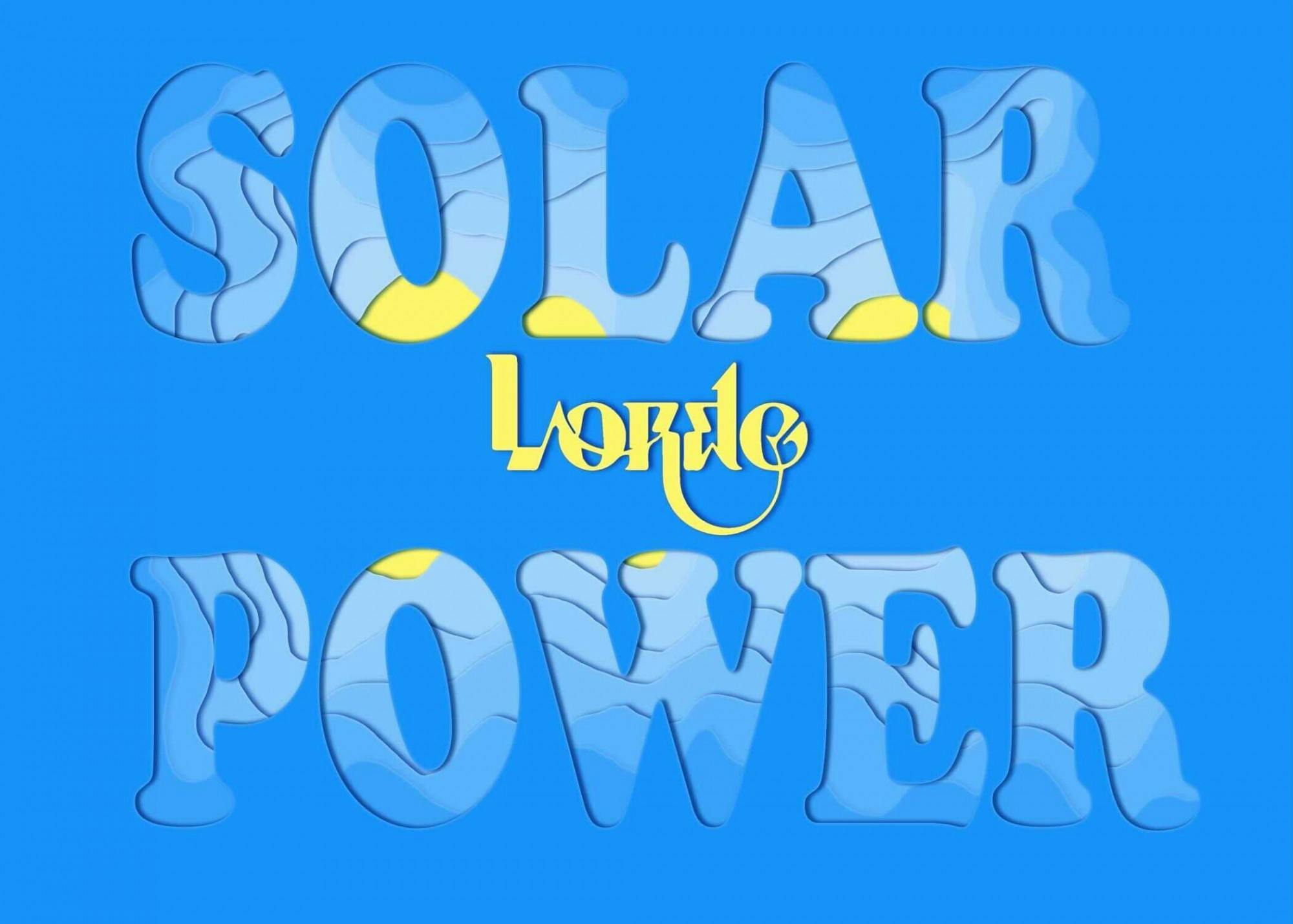Since the release of her sophomore album, “Melodrama,” four years ago, Lorde has been off the grid, retreating to the New Zealand countryside and even as far as Antarctica. This time in solace is reflected clearly, both lyrically and sonically, in her third studio album, “Solar Power.” Lorde has created a poetic and astonishing album with a beautiful –– though occasionally repetitive –– folk-pop sound.
Lorde chooses the perfect opener for “Solar Power” with “The Path,” a song that feels almost like a thesis for the album. It introduces the main themes of her album: struggling with fame and turning to nature for healing. She also sets the sound for the album with the song’s light, sunny feeling and acoustic chords. It truly sounds like summer music — not necessarily like a summer album one would play at a party, but more like a summer album one would play while falling asleep in the sun on a beach.
Moving into her second song and the lead single, “Solar Power,” Lorde introduces the audience to this new era of her life. She sings, “Forget all of thе tears that you've cried / It’s ovеr (Over, over, over, over) / It’s a new state of mind / Are you coming, my baby?” She subtly transfers listeners from the sadness of “Melodrama” to the happiness of “Solar Power,” going on to sing, “Come one, come all, I’ll tell you my secrets.” This is exactly what it feels like to listen to this album –– it feels like hearing a friend divulge her secrets and reflections. Lorde manages to make “Solar Power” feel incredibly private and personal to her extensive audience.
Lorde also includes satire in her lyrics, proving her intelligence and skill as a songwriter. “Mood Ring” was the third single released prior to the debut of the entire album, and it’s a poignant take on modern wellness culture. The light and lively sound is juxtaposed with feelings of being lost. As she sings “You can burn sage and I’ll cleanse the crystals” and “Let’s fly somewherе eastern, they’ll havе what I need,” she critiques and exposes the ways in which wellness practices take advantage of marginalized peoples and their cultures.
As a listener, the reason Lorde is such a standout artist is because she is able to uniquely and perfectly capture growing up at each stage of her life. “Pure Heroine” is the simultaneous angst and nostalgia of teenage years, “Melodrama” is the metaphorical end of the party and end of a relationship, and “Solar Power” is a lyrical reflection on life and fame. As Lorde grows, she is both similar to and different from her audience. The themes of “Pure Heroine” and “Melodrama” are more universal, while those of “Solar Power” reveal how fame has altered her life.
Lorde is honest about her life in her lyrics, so a lot of “Solar Power” discusses the problems that she finds with fame. For some listeners, it can create a little bit of distance between her and the listener, in the sense that it’s not relatable, but for others, it may create a deeper sense of closeness because it feels like she’s confiding her deepest secrets. In so many other ways, though, she is still a normal person in her early twenties, and some experiences that she sings about are universal. She talks about dealing with true loss for the first time in “Big Star” and generally contemplates getting older, wondering if she’s made the right decisions in “Secrets from a Girl (Who’s Seen It All)” and “Stoned at the Nail Salon.”
In comparison to Lorde’s previous works, “Solar Power” has a completely different sound, aligning more with the genre of indie-folk music. This shift is a double-edged sword. With “Solar Power,” Lorde proves that she’s versatile and that she’s unafraid to explore. But at the same time, this change can alienate some fans who preferred her older sounds. “Pure Heroine” lacked acoustics, creating more of a dance-pop sound, while “Melodrama” heavily utilized the piano, making for sadder and slower sounds. “Solar Power” is acoustic as well, but it’s acoustic in a completely different way. It relies on the acoustic guitar, moving away from the synth sounds of both of her previous albums.
“Solar Power” is not a monotonous album, but the repetitive use of the same instruments and a similar tone throughout mean that some less memorable songs begin to blend together and sound the same. Lorde’s voice has matured, and her vocals are incredible. However, sonically, the album at times sounds unfinished. In some songs, such as “The Man with the Axe,” it almost sounds like there is an instrument or two missing that could make the song overall feel fuller. Similarly, “Oceanic Feeling” is over six minutes long and only features the same few chords. Perhaps from Lorde’s perspective, this artistic choice emphasizes the lyrics and allows her to just float through the song. However, for a listener, this repetition can be quite boring.
Overall, “Solar Power” is a truly stunning work of art; however, being a work of art does not mean perfection. Lorde’s artistic choices can simultaneously highlight the poetry of her writing and prevent her from realizing her full musical potential. Nevertheless, “Solar Power” is a stunning addition to Lorde’s repertoire and solidifies her status as a versatile artist and innovative songwriter.
Rating: ★★★★★
Jessica Sun Li '24 is a sociology major and English minor from the suburbs of Chicago. She was the 180th Directorate's arts editor, and her passion project is the "Dear Mirror" column. Outside of The Dartmouth, she is involved in the figure skating team and sociology research. She really wants to adopt a cat.




